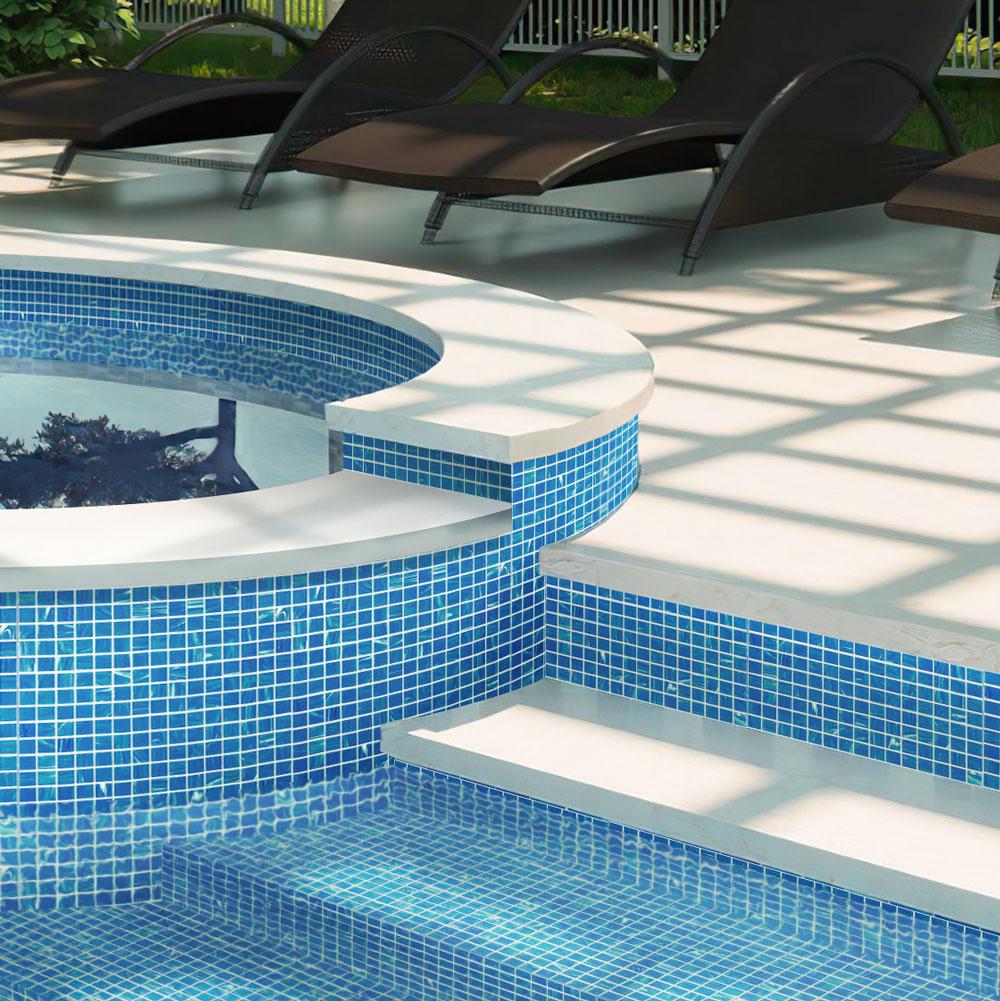Trust us for your pool cleaning needs.
After professionally cleaning your pool tiles, you want to preserve that pristine look for as long as possible. Pool tile sealing is an excellent way to protect your investment, enhance its appearance, and make future maintenance easier. But what kind of sealer should you choose, and is it always the right decision? This guide breaks it down for SoCal pool owners.
What Pool Tile Sealing Does (and Doesn't) Do
Applying a high-quality sealer to your tiles is a protective measure with multiple benefits. Think of it like waxing a car; it adds a defensive layer against the elements.
What Sealing DOES:
- Enhances Appearance: Sealers can deepen and enrich the color of your tiles, bringing out their natural beauty and giving them a vibrant, "wet" look (especially a gloss tile sealer).
- Provides Protection: It creates a barrier against contaminants like oils, lotions, and chemical residue, as well as the harsh effects of UV rays and pool chemicals.
- Makes Cleaning Easier: The smooth, sealed surface prevents dirt and early-stage algae from adhering as strongly, making your routine brushing more effective.
- Slows Calcium Buildup: A sealer fills in the microscopic pores of the tile and grout, making it harder for calcium to get a strong foothold. It doesn't stop calcium completely, but it can significantly delay its return.
What Sealing DOESN'T Do: A sealer is not a permanent shield. It cannot stop heavy calcium scaling if your pool's water chemistry is consistently imbalanced. It is a tool for protection and enhancement, not a replacement for regular maintenance.

A quality sealer enhances the depth and color of glass and ceramic tiles.
Gloss vs. Matte Sealer: Which is Right for You?
The choice between a gloss and a matte finish is one of the most common questions we get about pool tile sealing.
Gloss Tile Sealer
- Pros: Delivers a high-impact, shiny "wet look" that makes tile colors pop. It provides excellent UV protection and is very easy to wipe clean.
- Cons: The high shine can highlight imperfections in older tile. On very smooth surfaces, it can be slightly more slippery than matte, though this is rarely an issue at the waterline.
Matte Sealer
- Pros: Provides a subtle, natural finish that doesn't significantly alter the tile's original appearance. It's excellent at hiding minor flaws and provides a more textured grip.
- Cons: It offers less color enhancement than a gloss sealer. While still protective, it may not provide the same level of brilliant sheen that many homeowners desire after a cleaning.
How Long Does Sealing Last in SoCal?
In Southern California, our pools face a tough combination of intense, year-round sun and hard water. These factors break down sealers faster than in other climates. With proper application and regular pool maintenance, you can typically expect a high-quality pool tile sealer to last **2 to 4 years** before a re-application is recommended.
Cost & When Sealing Is NOT Recommended
The cost of professional pool tile sealing typically ranges based on the linear footage of your pool's waterline. It's a valuable investment, but there are times we advise against it:
- If Tiles are Damaged: Sealing won't fix cracked tiles or failing grout. These issues should be addressed first.
- On Certain "Soft" Stones: Very porous or delicate natural stones may require a specialized penetrating sealer rather than a topical one.
- If a Major Renovation is Planned: If you plan to re-tile or resurface your pool within a year or two, the cost of sealing may not be justified.
Frequently Asked Questions
How soon after cleaning can you seal?
The tile and grout must be completely dry. We typically recommend waiting at least 24-48 hours after a professional cleaning to ensure all moisture has evaporated, allowing for the best possible bond.
Can you seal natural stone and rock features?
Yes, absolutely. Natural stone, rock waterfalls, and coping are often more porous than tile and benefit greatly from sealing. We use specialized sealers designed for these materials to protect them from erosion and staining.
Does sealer prevent all future calcium?
No. A sealer is a protective barrier that slows buildup, but it cannot defy water chemistry. The most effective way to prevent calcium is by maintaining proper pH and alkalinity levels in your pool water.

